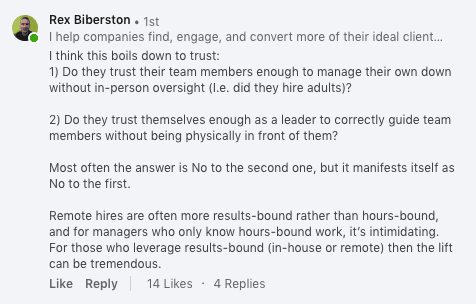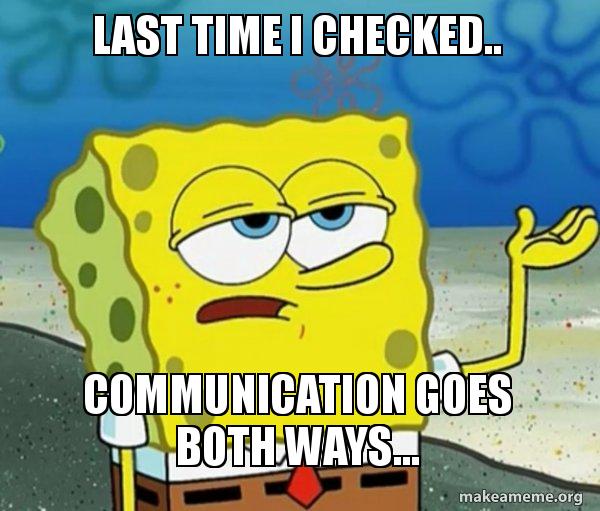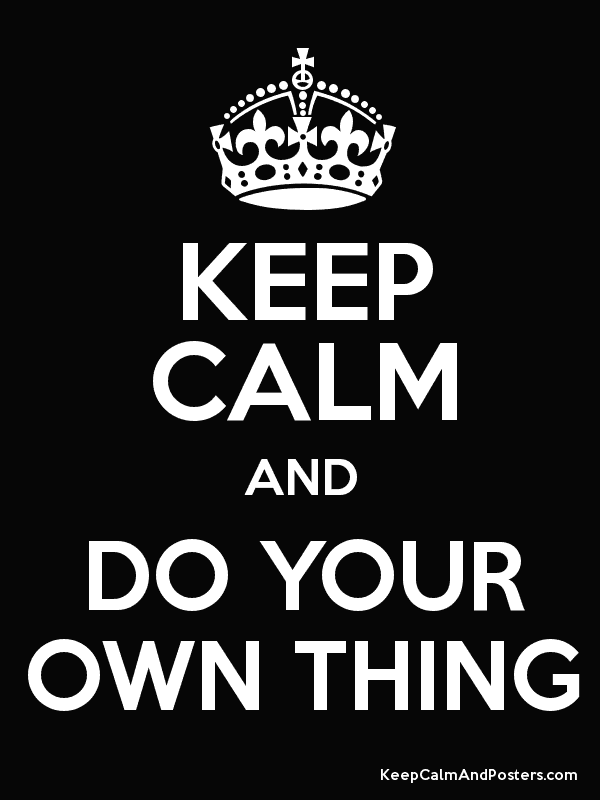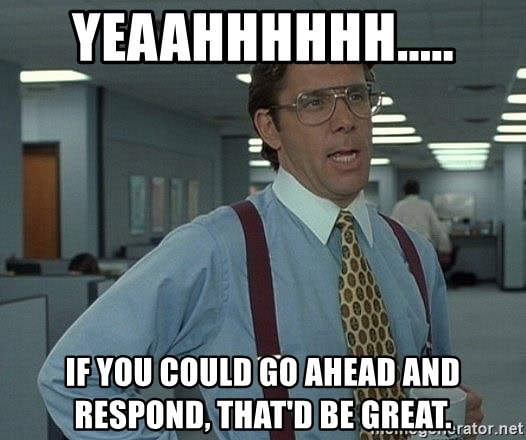
How to hire and manage a remote sales team.
If you work in sales and reading what I’ve been reading, chances are you’re familiar with the benefits of hiring your best and brightest salespeople remotely.
What’s less talked about, however, is how to actually manage these types of teams effectively… and I’ve seen this scare many sales leaders away from considering a remote team in the first place.
So I did a little “survey” on LinkedIn a little while ago to see what my network thought about remote sales teams and hiring remote salespeople.
The response was overwhelming. But among the 115 comments, my friend Rex Biberston made an A+ diagnosis on what is really going on when remote work doesn’t work out:

So many good nuggets of insight in there!
For the better part of the last 12 years, I’ve had tremendous success working remotely and know what it can do for businesses that embrace it fully. But the truth is, it does require a little different of an approach.
At the end of the day, it’s up to leadership to drive the result they want to see. But it is possible to create a productive and collaborative culture remotely – you just have to know how.
And you should, because remote really is the future of work!
I’ve found the concepts below to be the key ingredients for the recipe of success when it comes to managing a remote sales team effectively.
Everything starts with the right hire.
Just like in any relationship, it’s much easier to start with someone who just “gets it” than one who will need a lot of coaching to be the person you want to be.
This is the mindset you need to adopt when you’re hiring any salesperson/leader. But especially for a remote role, because it does require a lot more of a “self-starter” mentality.
Ideally, that person would have a track record of success while working remotely already. This is a good indicator they have what it takes.
But beyond that, you’ll want to look for these things as well.
How are their communication skills?
Working remotely often breaks down due to a failure to communicate effectively.
So it’s critical to look at how they communicate with you during interviews as a test for what it would look like to have them on your team.

Communication is a 2-way street… make sure they’re great communicators!
Ask yourself:
- Are they prompt with responses or are you always waiting?
- Are they proactively seeking answers or do they wait for you to tell them what to do?
- Are they concise and clear or do you always have to follow up to get an answer?
These are the kinds of communication traits you should be looking for in someone who will be an effective remote teammate.
Do they believe in your mission?
I think most sales leaders are afraid to “go remote” because they’re afraid they won’t have oversight over their people.
However, my experience has shown that if they’re truly working in a place where they believe in what they’re doing, this won’t be so much of an issue (as long as you continue to keep them engaged on this level that is).
As Simon Sinek is quoted as saying…

“People don’t buy what you do, they buy why you do it.”
– Simon Sinek
This is especially true for people who are on your team too. High engagement at work can increase productivity by up to 21%!
And that’s where most hiring efforts (and not even remote hiring efforts) go wrong.
Because a new team member doesn’t really engage with the mission they are apart of, their motivation to achieve their goals goes down.
And the distance only makes things worse when you’re in a remote working relationship. So it’s important to make sure you’re on the same page with this before you bring them onboard.
Do they have an innate sense of initiative?
Again, it’s important that your remote team members are tenacious enough to tackle their challenges on their own first.
They need to be go-getters who don’t need a push – something an aligned “why” should help with, but may not cover completely.
So you’ll want to ask them about how that why has driven them to create results and about times they took the initiative to create results when no one was looking over their shoulder.
They should be able to give you specific examples and the results that followed. If not, this is a red flag.
Are they transparent and vulnerable?
It’s a lot easier to hide things when there is physical distance. So you’ll want to pay attention to how they answer questions about their failures specifically.
Are they open and honest? Did they learn from them and bounce back?
Or are they cryptic in their answers?
Remember, it’s also important for you to create that environment of psychological safety. But if they don’t already display the ability to do that themselves in an interview, it’s not a good sign.
Set expectations early and often.
Finding a person who “gets it” and is tethered to the mission is the foundation. But you still have to work hard to set the stage and keep them engaged for a successful remote culture.
Any remote employee needs guidelines they can embrace and follow just like anyone else you’d want to hire. Plan to establish and reestablish mutual expectations early and often.
Early being during the interview process. Often being at regularly scheduled intervals once they’ve joined the team.
Expectations you should set:
- Availability. Just because someone is remote doesn’t mean they work 24/7. Let them know you respect that and establish healthy guidelines for communication. When are they working and available to be contacted? Set these expectations for you and them.
- Office hours. Set aside a specific time every day to talk open office hours so to speak where if you need it great if not you just got some time back in your day but it’s dedicated for both of you to stay connected in a meaningful way.
- Results/KPIs. Remote workers are much more focused on results than hours. But that also means they have to know what they’re working towards to be productive. You’ll want to make sure you discuss the key elements you as a leader need to see (this also should be discussed and agreed upon during an interview as well) to feel like the person is successful in the role. And don’t get caught up on the wrong metrics – measure the right things
- What they need from you as a leader. Your primary responsibility as a leader is to help them be successful. So make sure you have both taken time to clearly define that together in the context of working remotely. Understand how they like to work and address the gaps between your expectations and theirs
- Tech stack. Identify expectations for the tech stack you’ve invested in to support them and talk about best practices to get the most out it. Remember to take the admin garbage out of the equation – tech is here to help not hurt.
Setting expectations with mixed teams.
If you have a mixed bag of an in-house and remote team setup, it’s essential to keep your expectations for both teams the same. Every single person should understand that there’s no inequity between them and it’s important to make sure that there truly isn’t.
Tech stacks for remote sales teams.
There are so many tools available today to keep teams connected. Too many to list actually.
And the truth is, I can’t really recommend a tool for you specifically because every sales team and sales process is different.
So rather than using what everyone else is, think about your process and get the tech that enables it to work smoother and better.

There are no perfect solutions for every sales team… do what works best for you!
What are the gaps you’re facing? What is your team struggling with and where are they getting lost?
Answering these questions will help you formulate a sense for what kind of tech will best solve that problem.
Whatever you do…
Don’t bog your team down – keep communication useful and productive at all times (more on how to do that in a second).
I see too many teams caught up in useless communication that distracts them rather than helps them progress towards their goals.
Remember – remote workers are heavily focused on results. Constant pings or requests from different communication sources prevents them from getting their work done.
Be responsive.
Remote salespeople can quickly become disheartened if they feel out of touch with their team or their manager. This happens most often because of a lack of responsiveness.
Put yourself in their shoes… how would you feel if it took 24hrs to answer a question every time?

Don’t leave your team thinking this….
Even if you don’t have an answer right away, acknowledging that you’ve received their question and will reply shortly does wonder for making them feel engaged and heard.
I personally do this by proactively letting people know if I’m going to be tied up and it will take me longer to respond and if I’ve seen something but thinking on it.
In essence, I approach each thing like a mini project and set expectations.
How to “check in” on a remote team member.
I’m all for scheduled meetings, but I also embrace the impromptu call from time to time as well. It can be a great way to keep your team engaged and cared for if you do it well.
However, there is a bit of an art to the unscheduled check-in… after all, there’s a fine line between going impromptu and micromanaging.
So you’ll want to pay special attention to why you’re calling and what kinds of questions you’re asking when you do.
Good questions to ask:
- What’s one thing I can take off your plate right now?
- What’s the biggest roadblock you’re facing currently?
- How are you feeling about XYZ thing?
- How did you feel about the conversation with XYZ client?
Bad questions to ask:
- What are you working on at the moment?
- What does your pipeline look like?
- What business will close this week?
- How many hours are you working?
There’s nothing more powerful than a leader you trust calling you up and asking you if they can make your life easier or seeing how you’re feeling about a challenge.
By doing so, you create a safe space for them to be vulnerable and ask questions.
However, by asking them questions about things like deadlines, pipelines, deals closing, etc., it’s going to make them feel like you don’t care about them – just the results. Which is ok, but you should be able to get that information from a CRM or with the right reporting systems.
Make sure they know you care about them and what they’re struggling with first and foremost. This will keep them connected even though there’s a lot of distance between you.
Be personal.
One hard thing about working remotely is the lack of contact with other people in general. And in that sense, sometimes a little personality can go a long way too.
Send a funny meme, or joke about carbonara (true story, we had a discussion about this internally here at ATP over Hangouts one day).
Little things like these can go a long way to build a relationship with your teammates over distance.
Listen.
It’s one thing to ask great questions. But you need to actively listen to the answers too.
After you’ve heard them, ask them what THEY need and create an action plan that removes barriers while providing effective support. Listen to the space in between and make moves to get them what they need.
This way, you’ll be hands-on enough that all of your employees will feel truly connected without feeling micromanaged. #winwin
Get some face time (from time to time).
One of the downfalls of working remotely is feeling isolated or the “red-headed stepchild” syndrome. I would be lying if I said I haven’t felt that way a time or two myself over the years.
Scheduling set-in-stone meetings where both of you can connect in person is a great way to avoid this dilemma.
(Side note: It’s also why partially remote or a work-from-home policy can be a better solution for many teams)
Whether you need to meet once per week, every other week, or once per month in person, both parties should have a clear understanding of when you’ll have each other’s undivided attention outside of the team huddle.
Your time together should be less about your needs and wants as a leader and more about your employee’s needs, obstacles, wins, ideas, etc. This is about you enabling them, not a checkup to hold them accountable.
How to get the most out of your time together.
Even when I was working remotely, I’d often have to plan around my days in the office because I knew that I’d be less productive on those days.
So the more you can do to make sure face time with your employee is the productive, the better. Otherwise, what’s the point?
My recommendations for face time:
- Create an agenda for each one. Clearly outline what you’re going to talk about and what you’re trying to accomplish. Having agreed upon expectations and goals that are regularly discussed in a meaningful way will help all parties stay focused on the big picture.
- Change it up to avoid monotony. Many times, my boss would blow me off or regurgitate the same topics, never really caring to hear what I had to say or what I/my clients needed. I usually left the conversation feeling frustrated with wasted, unproductive time. Mix it up and have your employee create the agenda based on what they need from time to time. This reminds them they have a voice.
Final thoughts.
Managing a remote team can be stressful if you’ve never done it before. However, the future of work is through distributed teams and there is no time like the present to learn.
It’s estimated that by 2025 the workforce will be 75% millennials. And since 45% of millennials would gladly leave their current job for one that’s remote, I can almost guarantee you that your business’ future will rely on remote workers.
Sales advice that works, in your inbox.
No spam, no pitches. Just real insights like these that have helped us win at sales and recruiting over the last 20 years via email each week.
